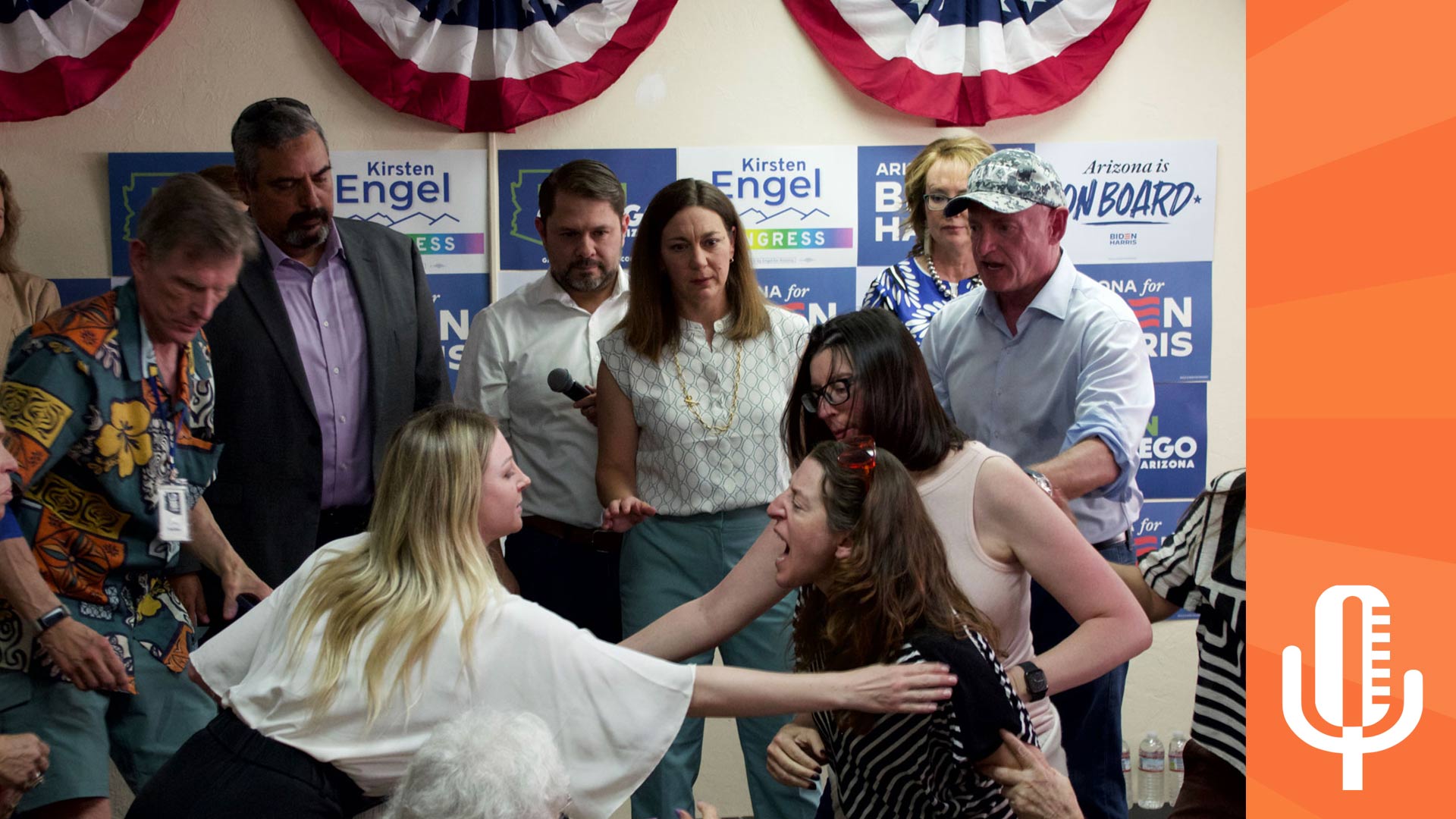
The Buzz for November 01, 2024

For many, Tuesday's election will come with a sigh of relief, not because their candidates won but because of the end of campaign rhetoric.
Stump speeches and ads have grown more hyperbolic and ill-mannered in recent years, much to the chagrin of many who attended an AZPM event centered on educating voters.
"I've never experienced anything to this degree of animosity and anxiety and and hatred towards those who are of a different bent than you," said Gene Orth, who has been voting since the 1970s. "I'm nervous as hell. I've never been so anxious about an election in my life, and I feel I'm on the verge of losing what's left of what I've considered American democracy and the things that have made our country great."
Many of those AZPM spoke with at the event said they were tired of hollow rhetoric taking the place of substantive policy discussion.
"I think the last normal election we had was the one between Mitt Romney and Barack Obama, where policy discussions were still the main focal point, instead of the focus on personalities," said a voter who only identified himself as Josh. "That seems to be the state of politics today. So I hope that this can be reversed."
"We need people who really think through the issues and act on them, instead of just coming up with sound bites and symbolism, and we focus on symbolic representation," said Vic Roych.
Such feelings about the electoral process go beyond voters, with people who were a part of the election process giving similar thoughts.
"I have never seen a time in American politics where, you know, someone could be wearing the red MAGA hat, and you just think of that person as that guy's an idiot, right? And I think they feel the same way about someone who supports Kamala Harris," said Barrett Marson, a longtime Republican strategist and CEO of Marson Media. "We are so polarized, and each side raises the temperature, whether it's Democrats calling Trump fascist or, you know, akin to Hitler, or whether it's Trump and his acolytes talking about Harris as a communist socialist. Those type of words, and you know, they're a danger to America."
Richard Carmona, who served as US Surgeon General during the George W. Bush administration and later ran for the US Senate as a Democrat, said tribalism has always been a part of politics, but it is getting notably worse.
He recalls a time shortly after launching his senate campaign in 2012 where he was in Washington, D.C. to raise funds via phone calls to potential donors.
"They give you a list of people to call, and they give you a script and say, here's the points you have to make, but all of them were about how bad the other guy was and how good I'm going to be," Carmona said. "And on the other side, he's got his script and he's saying how bad I am and how good he's going to be okay. What's different today is there was not misinformation or disinformation. It was mostly discourse about what I think was important to move forward and what they thought was important to move forward. Today, misinformation/disinformation and an internet that's much more robust today, fake everything on the internet, so the public is being fueled with bad information. And I can't tell you how many times I've had people say, 'Did you see what they said today about this candidate?' I said, 'that's a lie, they make it up.'"
Voters at our event had similar feelings about negativity in politics, and expressed worry about the effect it will have.
"I feel that it is not useful to tell people they're stupid or ignorant. People are just going to react," said Jodi R. Netzer. "We need to approach this more from a place of curiosity. What really concerns people on a deeper level? And then let's tie them together with what are the common threads there."
"I think a solution would be to come out of your comfort zone, even though it is hard and it can be intimidating," said Woody Manuel. "Because if we don't, that division is going to get further away and we're going to get further apart as citizens."




By submitting your comments, you hereby give AZPM the right to post your comments and potentially use them in any other form of media operated by this institution.